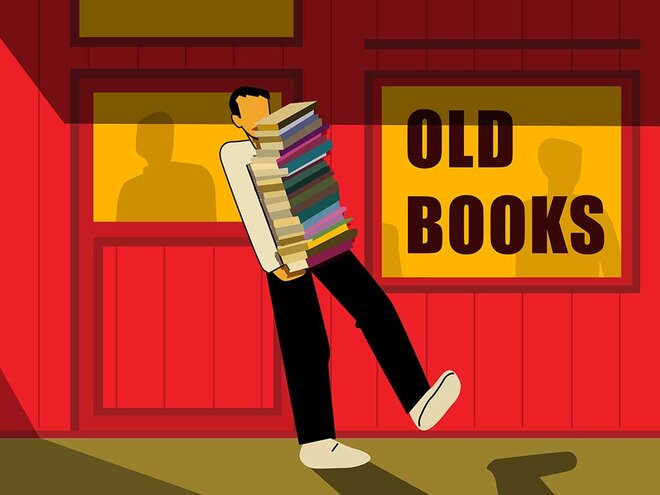
I was never in the business of collecting books, but they kept piling up, as I picked one book here and another there and before I could say, William Shakespeare, there were hundreds. When you have so many books, you have to keep them and look after them lovingly, as you look after your children and grandchildren, for somehow they become a part of your life and you keep on adding to them until your family says enough and starts giving them away.
I bought most of them - there were over 5,000 at one time - in second-hand book shops scattered all over the world, from London - where as a student, I bought my first book - and Paris to Bombay and Calcutta and went on adding to them until the shelves creaked and even bathrooms were full of George Orwells, Graham Greenes, not to speak of Nehrus and Gandhis.
The first George Orwell I picked up - for just one shilling at a bookshop in Walham Green underground in London - was Animal Farm, a slim little volume of about 80 pages, full of spelling mistakes. I remember I was crossing Westminster Bridge near the Parliament and I folded the book to pay the conductor. He had Animal Farm, too and we were comparing notes when I got down at Trafalgar Square and said goodbye, after purchasing my ticket which is still lodged snugly between pages 21 and 22. The book made Orwell famous but to me, it is not a book about Napoleon the pig but Big Ben and Trafalgar Square.
London was in a shambles after the War and the footpaths of Hampstead and South Kensington, where I lived, cracked under mountains of novels and travel books and of course, loads of Bernard Shaws and H.G. Wells. On Sundays, you went for a morning walk and picked up, if you felt like it, an entire volume of novels by Virginia Woolf, who had just committed suicide, some with her signature and pencil sketches, too, modern for my tastes. I was a student of economics, not literature and had never heard of Woolf or Bloomsbury. But her name and those of many others like hers used to crop up in newspapers and weeklies, though she was too highbrow for me.
On a bright summer day in Paris, I was going through the piles of books on the left bank, when I came across The Autobiography of an Unknown Indian by Nirad C. Chowdhury, a name I had never heard of. It was actually his own personal copy, for it had his name in Bengali and also his address. I wondered how the copy had reached Paris. There were also other books there, all in pale yellow and green cover, apparently a speciality of French books. The customs man in England pounced on them with a ferocity at the time reserved for fighting Nazis and took away all of them while he stroked his beard. After that, I never went to the Left Bank again.
There are no places for second-hand books like Delhi and Calcutta if you know where to look for them. Delhi's Daryaganj district specialises in books on the 1857 war, but most of them are in Urdu, just as most books in Calcutta's college street are in Bengali. In Delhi, I once picked up a slim volume of poems by Bahadur Shah Zafar but since I am not a connoisseur of Urdu poetry, I did not buy it. But Calcutta is to book lovers what Varanasi is to Hindus. I once spent a whole Sunday in a book shop there, redolent of sweat and mustard oil and came away with enough books to fill two sturdy shelves. Alas when we left Calcutta, the packers, a moody lot, forgot to pack them or probably carried them home for their elderly ladies.
I now live in Pune. Like Daryaganj in Delhi, there is a place called Sadashiv Peth in Pune where there are publishers' offices even on staircases. You mention you are a writer and half a dozen publishers pounce on you, ready with their cheque books. It must be a writer's paradise! If you can put pen to paper and think up a good story, hey presto, you can have a book with your own name and your own title and maybe your own readers too.








